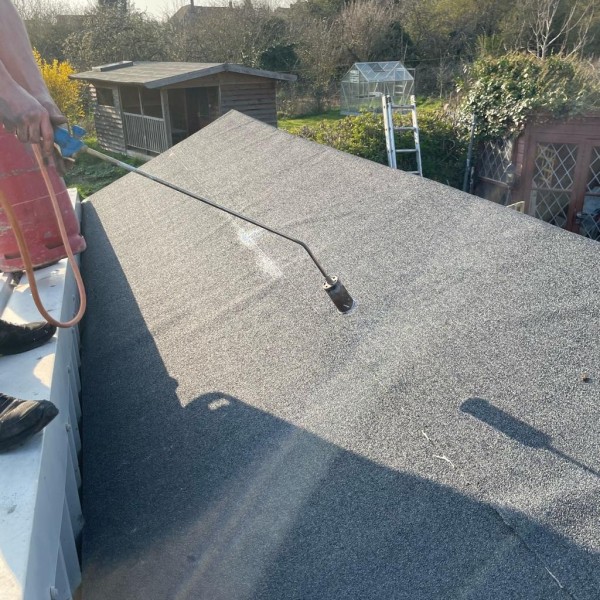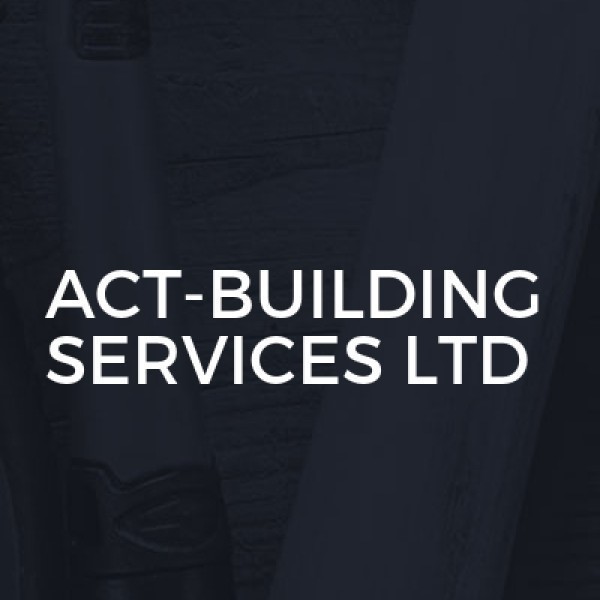Garage Conversions in Hounslow
Search Garage Conversions in places nearby
Understanding Garage Conversions in Hounslow
Garage conversions in Hounslow have become a popular choice for homeowners looking to maximise their living space without the hassle of moving. With property prices on the rise, converting a garage into a functional room offers a cost-effective solution to enhance your home. This article delves into the various aspects of garage conversions, providing a comprehensive guide for those considering this home improvement project.
The Benefits of Garage Conversions
Garage conversions offer numerous advantages. Firstly, they increase the usable space in your home, which can be transformed into a guest room, office, or playroom. This added space can significantly boost the value of your property, making it an attractive investment. Moreover, converting a garage is often more affordable than building an extension, as the basic structure already exists.
Enhanced Living Space
One of the primary benefits of a garage conversion is the additional living space it provides. Whether you need an extra bedroom, a home office, or a gym, converting your garage can cater to your specific needs. This flexibility allows homeowners to tailor the space to their lifestyle, enhancing comfort and functionality.
Increased Property Value
Investing in a garage conversion can significantly increase your property's market value. Potential buyers often look for homes with ample living space, and a well-executed conversion can make your property stand out. This improvement not only adds square footage but also enhances the overall appeal of your home.
Cost-Effective Solution
Compared to other home improvement projects, garage conversions are relatively cost-effective. Since the structure is already in place, the costs associated with building foundations and walls are eliminated. This makes it a budget-friendly option for homeowners looking to expand their living area.
Planning Permission and Regulations
Before embarking on a garage conversion in Hounslow, it's essential to understand the planning permission and building regulations involved. While some conversions may not require planning permission, it's crucial to check with the local council to ensure compliance with all regulations.
When is Planning Permission Required?
In many cases, garage conversions fall under permitted development rights, meaning planning permission is not required. However, if your property is in a conservation area or if the conversion involves significant structural changes, you may need to seek approval. It's always best to consult with the Hounslow Council to determine the specific requirements for your project.
Building Regulations Compliance
Regardless of whether planning permission is needed, all garage conversions must comply with building regulations. These regulations ensure that the conversion meets safety and energy efficiency standards. Key areas of focus include structural integrity, fire safety, insulation, and ventilation. Hiring a professional contractor familiar with these regulations can help streamline the process and ensure compliance.
Design Considerations for Garage Conversions
Designing a garage conversion requires careful planning to maximise the space's potential. From layout and lighting to insulation and flooring, each element plays a crucial role in creating a functional and aesthetically pleasing room.
Layout and Functionality
The layout of your garage conversion should reflect its intended use. For instance, if you're creating a home office, consider incorporating built-in storage and ample desk space. For a guest room, ensure there's enough space for a bed and wardrobe. Thoughtful planning can help you make the most of the available space, ensuring it meets your needs.
Lighting and Ventilation
Garages often lack natural light and ventilation, so addressing these issues is vital during the conversion process. Consider installing windows or skylights to bring in natural light, and ensure proper ventilation to maintain air quality. Artificial lighting should also be strategically placed to create a warm and inviting atmosphere.
Insulation and Heating
Proper insulation is crucial for maintaining a comfortable temperature in your converted garage. Insulating the walls, floor, and ceiling can help retain heat during the winter and keep the space cool in the summer. Additionally, consider installing a heating system to ensure the room is usable year-round.
Choosing the Right Contractor
Selecting a reliable contractor is a critical step in ensuring the success of your garage conversion. A skilled professional can guide you through the process, from design to completion, ensuring that the project meets your expectations and complies with all regulations.
Research and Recommendations
Start by researching local contractors with experience in garage conversions. Look for reviews and testimonials from previous clients to gauge their reputation. Additionally, seek recommendations from friends or family who have undertaken similar projects. A well-recommended contractor is more likely to deliver quality work.
Evaluating Experience and Expertise
When interviewing potential contractors, inquire about their experience with garage conversions. Ask to see examples of their previous work and discuss their approach to handling challenges. An experienced contractor will have the expertise to navigate any obstacles that may arise during the project.
Obtaining Quotes and Contracts
Once you've narrowed down your choices, request detailed quotes from each contractor. Compare their pricing, timelines, and proposed materials to make an informed decision. Ensure that the contract outlines all aspects of the project, including costs, timelines, and responsibilities, to avoid any misunderstandings.
Cost Breakdown of Garage Conversions
Understanding the costs involved in a garage conversion can help you budget effectively and avoid unexpected expenses. While costs can vary based on the size and complexity of the project, several key factors influence the overall price.
Structural Modifications
Structural changes, such as removing walls or adding windows, can significantly impact the cost of your conversion. These modifications often require additional materials and labour, so it's essential to factor them into your budget.
Electrical and Plumbing Work
If your conversion requires electrical or plumbing work, these services can add to the overall cost. Installing lighting, outlets, and plumbing fixtures involves specialised skills and materials, which can increase expenses.
Finishing Touches
The final touches, such as flooring, paint, and fixtures, also contribute to the total cost. While these elements may seem minor, they play a crucial role in the overall look and feel of the converted space. Allocating a portion of your budget to high-quality finishes can enhance the room's appeal and functionality.
Common Challenges and Solutions
Garage conversions can present several challenges, from structural issues to design dilemmas. However, with careful planning and expert guidance, these obstacles can be overcome, resulting in a successful conversion.
Dealing with Structural Limitations
Garages often have structural limitations, such as low ceilings or limited space. To address these issues, consider creative solutions like raising the roof or extending the garage. Consulting with a structural engineer can provide insights into feasible modifications.
Addressing Moisture and Dampness
Moisture and dampness are common concerns in garage conversions. Proper insulation and ventilation can help mitigate these issues, preventing mould and maintaining a healthy environment. Waterproofing measures, such as sealing floors and walls, can also be effective.
Maximising Space Efficiency
Making the most of the available space is crucial in a garage conversion. Consider built-in storage solutions, multi-functional furniture, and open-plan layouts to maximise efficiency. These strategies can help create a spacious and organised environment.
Environmental Considerations
Incorporating eco-friendly practices into your garage conversion can benefit both the environment and your wallet. Sustainable materials and energy-efficient solutions can reduce your carbon footprint and lower utility bills.
Using Sustainable Materials
Opt for sustainable materials, such as reclaimed wood or recycled metal, to minimise environmental impact. These materials not only contribute to a greener project but also add unique character to your converted space.
Implementing Energy-Efficient Solutions
Energy-efficient solutions, such as LED lighting and high-performance insulation, can enhance the sustainability of your conversion. These measures reduce energy consumption, leading to lower utility costs and a more environmentally friendly home.
Incorporating Renewable Energy Sources
Consider integrating renewable energy sources, like solar panels, into your garage conversion. These systems can provide clean energy for your home, further reducing your environmental impact and offering long-term savings.
Legal and Insurance Considerations
Ensuring that your garage conversion complies with legal and insurance requirements is crucial for protecting your investment. Understanding these aspects can help you avoid potential pitfalls and ensure a smooth project.
Understanding Legal Requirements
Familiarise yourself with the legal requirements for garage conversions in Hounslow. This includes obtaining necessary permits and adhering to building regulations. Consulting with a legal expert can provide clarity and ensure compliance.
Updating Your Home Insurance
Once your garage conversion is complete, update your home insurance policy to reflect the changes. This ensures that your new space is covered in the event of damage or loss. Contact your insurance provider to discuss the necessary adjustments.
Addressing Neighbour Concerns
Informing your neighbours about your conversion plans can help maintain good relations and avoid disputes. Address any concerns they may have and ensure that your project adheres to local regulations regarding noise and construction times.
Frequently Asked Questions
- Do I need planning permission for a garage conversion in Hounslow? In most cases, planning permission is not required, but it's essential to check with the local council.
- How long does a garage conversion take? The duration varies based on the complexity of the project, but most conversions take between 4 to 8 weeks.
- Can I convert a detached garage? Yes, detached garages can be converted, but they may require additional considerations, such as plumbing and electrical connections.
- Will a garage conversion add value to my home? Yes, a well-executed conversion can increase your property's value by providing additional living space.
- What are the common uses for a converted garage? Common uses include home offices, guest rooms, gyms, and playrooms.
- How much does a garage conversion cost? Costs vary based on the project's size and complexity, but a typical conversion ranges from £10,000 to £20,000.
Garage conversions in Hounslow offer a practical and cost-effective way to enhance your home's functionality and value. By understanding the benefits, planning requirements, and design considerations, you can embark on a successful conversion project that meets your needs and exceeds your expectations.




































